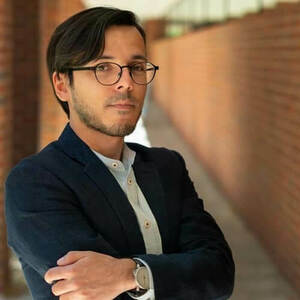
Notre Dame anthropologist Luis Felipe R. Murillo is helping launch a collaborative project focused on climate change issues with funding from the National Science Foundation that aims to promote the principles of open science.
The NSF is investing $12.5 million in 10 projects to “foster catalytic improvements in scientific communities,” including two that will be led by University faculty.
Murillo, an assistant professor in the Department of Anthropology, will utilize NSF funds to establish a hub — SEEKCommons (Socio-Environmental Knowledge Commons) — that unites social and environmental scientists with people most affected by climate change.
He’ll team with researchers at the Open Environmental Data Project (OEDP) and The HDF Group to form the research network.
Together, they aim to both research social environmental projects that make use of open technologies and catalyze a network of researchers working on the intersection of social environmental research with open technology.
Open science (and the hub) represent a renewed way of thinking about technology, Murillo said. The team’s research, designs, software, and data will be accessible to all and can be freely studied, modified, redistributed, and improved.
By addressing the climate crisis, Murillo said the hub — similar to Notre Dame — attends to the common good.
"We're fundamentally interested in technology for community-making. When we have open technologies, we can leverage them to support the communities that need to address very complex climate issues,” said Murillo, who is also an affiliate of the Notre Dame Technology Ethics Center (ND-TEC).
“(The issues) cannot be solved by social scientists alone. They cannot be solved by policymakers alone. And they cannot be solved by climate activists alone. So, the idea of bringing them together, using open technologies as a tool for community-making is very important in our project.”
Another Notre Dame-led NSF Open Science project involves physics professor Michael Hildreth. He’ll create a cyberinfrastructure — a “continuous pipeline between the data and results” for particle physics research.
Natalie Meyers, associate director of operations and professor of the practice at the Lucy Family Institute for Data & Society, said both projects will ensure their data is FAIR — findable, accessible, interoperable, and reusable.
"The FAIR principles are core open science principles,” she said. “We know that by practicing open science you help your future self as well as the broader community. You enable scientists and even machine learning algorithms to make new discoveries, and you empower organizations and individuals who can use your data to make a difference.”
Originally published by at al.nd.edu on November 18, 2022.